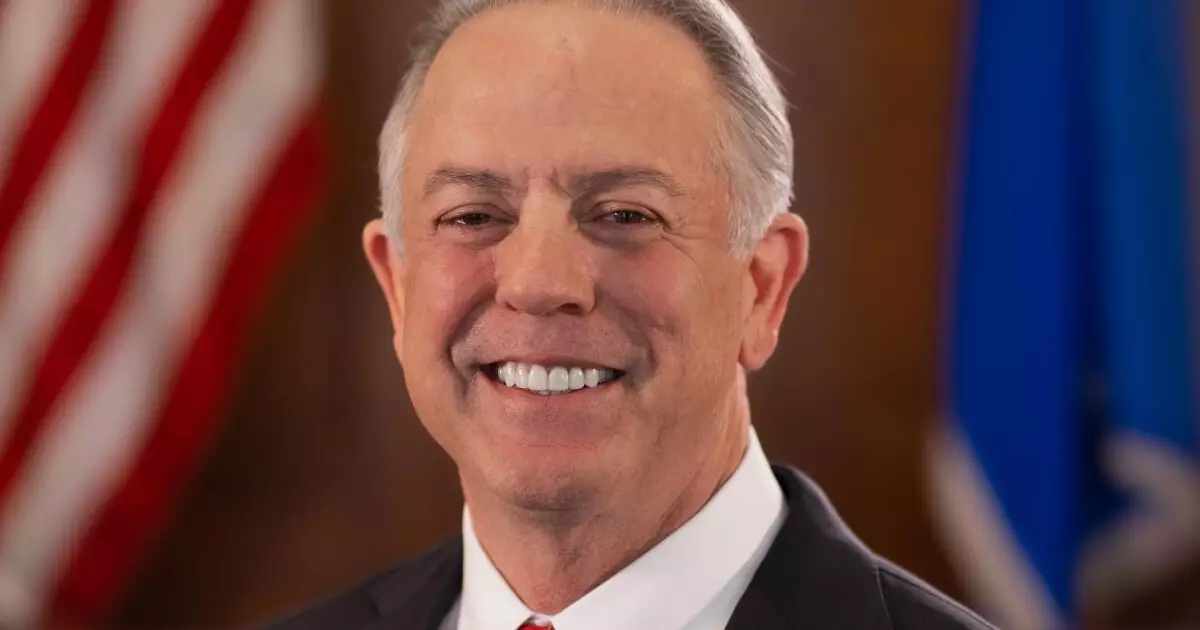In a striking move just prior to the commencement of the legislative session on February 3, Governor Joe Lombardo of Nevada announced the replacement of his budget chief, Amy Stephenson, with Tiffany Greenameyer. This decision has stirred discussions among lawmakers as they prepare to tackle the contentious budget proposal from the governor. With Greenameyer stepping into her new role, the expectation surrounding her is high, given her extensive background in fiscal management spanning over two decades. Her previous experience as deputy director of fiscal services at the Nevada Department of Health and Human Services brings a wealth of knowledge to the Office of Finance, but it remains to be seen whether this change can remedy the criticism that has arisen regarding Lombardo’s budget.
On the same day of the leadership change, Senator Nicole Cannizzaro, who leads the Senate majority, voiced serious concerns regarding Lombardo’s proposed budget, which totals $12.7 billion. Cannizzaro highlighted that the budget would generate a deficit of $335 million, a troubling figure given Nevada’s constitutional requirement to pass a balanced budget. This marks a critical issue as it raises questions about the governor’s fiscal responsibility and the potential implications for state programs moving forward. Cannizzaro, a veteran lawmaker, expressed her disbelief at sending a budget proposal that “just simply didn’t add up,” underlining the atmosphere of doubt among Democratic lawmakers as they gear up for negotiations.
Balanced budgeting is not merely a theoretical principle; it is a cornerstone of financial governance that ensures that expenditures do not exceed revenues. For Nevada, with its part-time legislature meeting biennially, the need for a robust and functional budget is paramount. The demand for careful fiscal planning is compounded by the state’s constitutional mandates, which put additional pressure on lawmakers to back a budget that is politically feasible—a balancing act that challenges the collaborative spirit necessary in a divided government. Given the burgeoning deficit forecasted in Lombardo’s proposition, the need for bipartisan cooperation in addressing fiscal misalignments will be crucial to uphold basic governmental functions and services.
Throughout his tenure and particularly in his recent State of the State address, Lombardo has touted ambitious initiatives aimed at making permanent raises for teachers, enhancing crime-fighting measures, and allocating $1 billion towards housing projects. While his proposed budget indicates a 9% increase from previous periods, the significant reserve fund of $1.3 billion purportedly accrued by the state adds complexity to the discussion. Lombardo’s approach, positioning himself as a proponent of expansive spending in crucial areas, must contend with the reality of a looming deficit, making it imperative to refine proposals to ensure that they align with fiscal sustainability.
The legislative process in Nevada demands careful navigation, as lawmakers are faced with the deadline of June 2 to finalize the budget. The traditional sequence of budgetary development begins with addressing the K-12 education budget, followed by allocations for state agencies and capital improvements. As the discussions ensue, the stakes rise not only for policymakers but also for the citizens who depend on the services funded through the state budget. As stakeholder groups brace for negotiations, the efficacy of Greenameyer’s leadership, coupled with collaborative efforts amongst lawmakers, will be under the microscope.
Amidst criticism and challenges, Governor Lombardo’s budgetary proposal sets the stage for what could be a contentious legislative session. With a critical eye on both fiscal responsibility and pressing public needs, lawmakers will face the challenge of reconciling divergent priorities. The successful passage of a balanced budget hinges on effective communication and compromise between the governor and the legislature, as well as among the various stakeholders involved. Navigating this fiscal landscape will ultimately define Lombardo’s governance and the legislature’s ability to serve the diverse interests of Nevadans. Balancing aspirations with reality is the essence of effective governance, and the upcoming legislative session will put this principle to the test.

